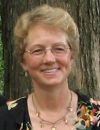Like many cities, Portland, Ore., grapples with a lack of affordable housing. Members of Salt and Light Lutheran Church recently worked with the Metropolitan Alliance for the Common Good (MACG), a community organizing group, to address the issue. Their efforts included listening sessions in their neighborhood, inviting worshipers to share their stories related to housing, attendance at city council meetings and phone calls to city commissioners.
As a result, Portland officials voted to increase the percentage of tax increment financing used to creat affordable housing from the proposed 30 to 45 percent. Over the next 10 years, $67 million in government funds will be used to build 670 units of affordable housing in the city.
This is just one of several organizing campaigns members of Salt and Light have participated in through MACG.
Melissa Reed, Salt and Light’s pastor, believes organizing activates people’s imaginations around what’s possible. It starts when they hear about or participate in the small and large victories won by ordinary people like them who come together to act collectively, she said.
The congregation is the “Lutheran, Christian, liturgical component” of a larger nonprofit organization called Leaven Community, Reed said. The congregation shares its leadership and physical space with Leaven Community and Reed works closely with LaVeta Gilmore-Jones, its community organizer. Together they continue a long tradition of involvement with faith-based community organizing started by the former Redeemer Lutheran Church, out of whose building and legacy the current community now operates.
For these two groups, community organizing is vital, its leaders contend, because they listen to and address the broad and deep questions that people around them are asking about their day-to-day lives.
“We need to come home and learn to live here and now. It’s not enough to tolerate or live next to folks, but we must continue to engage with and accompany one another, said a resident and Leaven participant who goes by the name Murph. “As [we] continue to listen, observe, discern and act, I plan to show up when I can, in the capacity I can, because we all need and deserve to be known, held and feel that folks have our backs.”
Two principles of community organizing have had a deep impact on the faith community, both of which have helped them be about systemic change: The first is creating a relational culture through on-onpone meetings. People are comfortable with and accustomed to sharing their stories. The other is intentional leadership development. Each identified leader in the community has a ministry partner. Usually one person is more experienced and the other is newer in the role. The community constantly looks for and creates opportunities for people to lead.
For Reed, community organizing intersects with her theology since, “organizing offers a framework and processes by which relationships can happen and be sustained. God dwells profoundly with the wounds of the world, bringing redemption to those wounds and resurrection to death-making ways of the world. We are called … to join God in this redemptive and resurrecting activity.”




